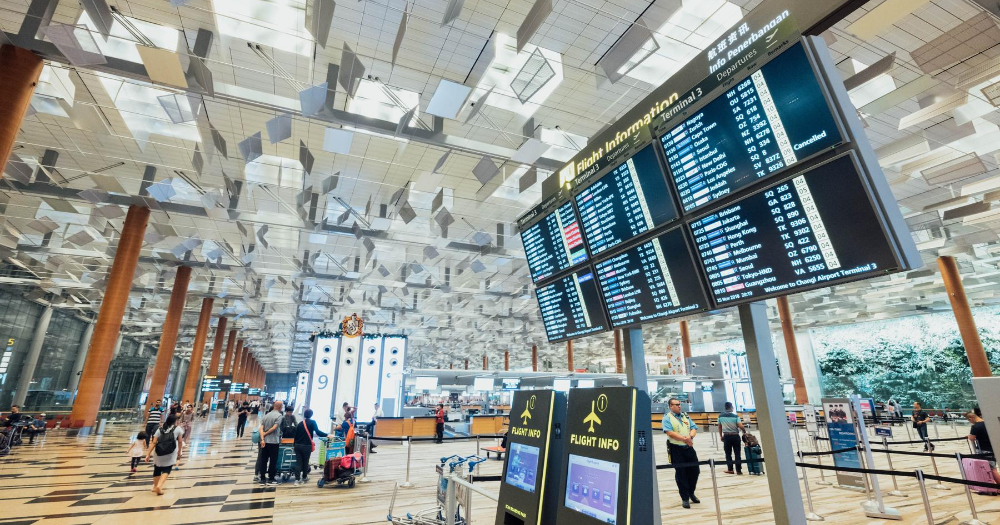With effect from 11:59pm on Aug. 10, all incoming travellers entering Singapore who are serving their Stay-Home Notice (SHN) outside of SHN dedicated facilities (SDFs) will need to don an electronic monitoring device throughout the 14-day SHN.
This new measure was announced in a joint press release by Immigration & Checkpoints Authority (ICA), the Ministry of Manpower (MOM) and the Ministry of Education (MOE).
It applies to Singapore Citizens, Singapore Permanent Residents, Long-Term Pass holders including Student Pass holders, Work Pass holders, and their dependants.
Electronic device will help government monitor those on SHN more effectively
Since Mar. 21, all incoming travellers have had to serve a 14-day SHN upon entering Singapore. They serve their SHN either at their place of residence, or at SDFs, and are tested for Covid-19 at designated community testing facilities before the end of their SHN period.
According to the press release, ICA, MOM and MOE have been monitoring SHN compliance using a combination of manual and automated text messages and phone or video calls, and physical house visits. Strict enforcement action is taken against those who breach the SHN requirements.
With the progressive lifting of travel restrictions, ICA, MOM and MOE say that the use of wearable electronic monitoring devices will enable to them monitor those serving SHN at their place of residence more effectively.
How it'll work
On arrival in Singapore, travellers serving their SHN at their place of residence will be issued with an electronic monitoring device at the checkpoints, after immigration clearance.
They will need to activate the electronic monitoring device upon reaching their place of residence. If the device is not activated as required, the authorities will follow up to determine their location, and assist to resolve any technical difficulties, or take enforcement action, as the case may be.
During the 14-day period, people wearing these devices may receive notifications on these devices, and need to acknowledge them in a timely manner.
Any attempt to leave the place of residence or tamper with the electronic device will trigger an alert to the authorities, who will conduct follow-up investigations, except when the person is leaving their place of residence for their appointment for the Covid-19 test.
After serving their SHN, they need to deactivate the device and dispose of or return it in accordance with the instructions.
Two groups excluded from this new measure are students on SHN residing in hostels in educational institutions, as they will be under close observation, and those under the age of 12.
Data security
The devices use GPS and 4G/Bluetooth signals to determine if people on SHN are within the range of their place of residence, said the press release.
The devices do not store any personal data and do not have any voice or video recording function. Data transmitted from the devices to the authorities’ backend system, such as the GPS and 4G/Bluetooth signal data, is protected by end-to-end certificate-based encryption.
The joint press release wrote that the government will abide strictly by public sector data protection rules in managing and protecting personal data collected by these devices, including the recommendations of the Public Sector Data Security Review Committee.
It added that only Government officials authorised by the respective authorities will have access to the data for the purposes of monitoring and investigation.
Failure to comply with SHN requirements could lead to fine or imprisonment
Those who fail to comply to SHN requirements — including those who tamper and/or remove the electronic monitoring device during the SHN period — will be liable to prosecution under the Infectious Diseases (Covid-19 – Stay Orders) Regulations 2020.
The penalty may be a fine of up to S$10,000, imprisonment of up to six months, or both.
For foreigners, ICA or MOM may take further administrative actions, such as revoking, or shortening the validity of permits and passes to remain or work in Singapore.
Top photo via chuttersnap on Unsplash.
If you like what you read, follow us on Facebook, Instagram, Twitter and Telegram to get the latest updates.
